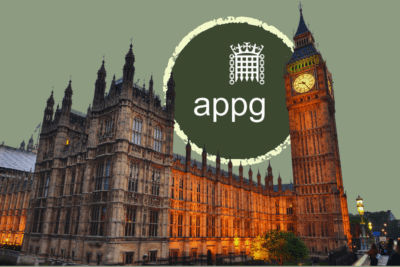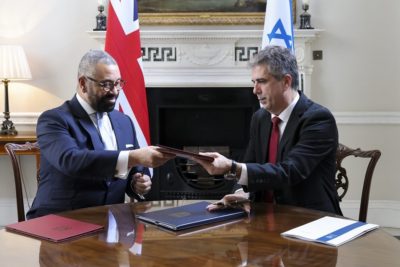Armed Forces Day, Camo Day and promoting military ethos
ForcesWatch comment
Today is ‘Camo Day’, established by SSAFA Forces Help to encourage school children across the country to ‘dress up like our troops’ as a fundraiser. ‘Cam your face, wear green or come to school as a soldier, sailor or airman.’ Camo Day is a non-uniform day to fit these increasingly militaristic times when supporting the armed forces is a badge of honour for celebrities and military involvement in the education system is commonplace and uncontroversial. Camo Day promotes the value of helping ex-service men and women but also reinforces military activities as fun, normal and desirable. Questions about why so many young men and women are killed or maimed or in need of welfare are unlikely to be explored.
Tomorrow is Armed Forces Day – a day “to raise public awareness of the contribution made to our country by those who serve and …an opportunity to Show Your Support for the men and women who make up the Armed Forces.”
The Armed Forces Day website states that that “UK Armed Forces defend the UK and its interests. They are busy working around the world, promoting peace, delivering aid, tackling drug smugglers and providing security and fighting terrorism.” This is something of a rebranding of the unpopular wars that the UK has been involved in for 10 years. This economy with the truth extends to the activity materials provided for schools as part of the big celebration.
One-sided – Armed Forces Day activities in schools
Army-sponsored school activities include ‘Be a hero for Armed Forces Day’ for 7-11 year olds ending with a section on ‘Real life heroes’ which focuses exclusively on the armed forces. For 11 – 16 year olds, the activity is planning an event to celebrate Armed Forces Day and “remember to display your Armed Forces Day banners and flags”.
The Ministry of Defence school assembly plans for Armed Forces Day present armed forces life as ‘helping others’, such as those involved in civil wars and natural disasters, and ‘being brave’. Activities include flag-raising, celebrating someone who is or was in the armed forces, listen to military music and creating a celebratory poem or video about how the armed forces provide help. Older children are encouraged to ’empathise with those who choose to join an Armed Service’ or, if they are in a cadet force, to wear their uniform to school and promote the cadet forces there. The teachers’ notes state that military operations are ‘a fact of modern life’ and make the case for continuing operations in Afghanistan. At no point do any of these materials mention the realities of war or the costs to those involved.
The military ethos ideology
When Armed Forces Day and Camo Day have passed, the Government will continue the work of promoting military involvement in education as part of its ‘military skills and ethos work’ which includes expanding cadets forces and allowing free schools to be run exclusively by ex-military personnel, untrained as teachers, with a zero tolerance approach to discipline. The Department for Education are currently inviting proposals for initiatives that will develop projects promoting ‘military ethos’ in schools, “to support pupils who are either disengaged with education or at risk of becoming disengaged”. The concept of ‘military ethos’ is not defined; neither is there an indication of why it may be appropriate within an educational environment. They are also exploring the idea put forward by the right-wing think-tank, ResPublica which advocates the development of military-sponsored academies, “officially backed by the Armed Services and delivered by the Cadet Associations”.
The military-sponsored academies proposal was presented as a response to the 2011 riots but is an example of how the ideology of ‘military values’ can attach itself to any opportunity: We are winning the war on terror, we are winning the war on lack of discipline and ‘social and educational dysfunction’. And increasingly no public event, including the Jubilee celebrations and the Olympic opening and closing ceremonies can be complete without a military presence.
That military values are increasingly creeping into our schools is a reflection of how much further the military has become embedded into public life in recent years. The Government report of 2008, National Recognition of our Armed Forces, found that support for the armed forces had been eroded and thus set out to establish Armed Forces Day and a host of other ‘countervailing measures’ involving public outreach, and more visibility of the military within schools. Acknowledging that there is a high level of support for the armed forces but unwilling to accept that armed force itself is less acceptable, the government continues to use events such as Armed Forces Day to conflate its own political interests with ‘UK interests’ and utilises the public’s concern for individual members of the forces and their welfare. The result is an event that celebrates the structures and traditions that support a military approach to conflict and makes understanding of conflict and how it could be prevented less, rather than more, likely.
Obscuring the realities of conflict
Events such as Armed Forces Day close down discussion around the realities of conflict rather than open up room for debate. Young people sign up to the sense of national pride, glorification, heroism, adventure and ask questions later. (They also want the possibility of self-improvement, a good career (or a paid job) and, indeed, to help others – fine qualities that the armed forces are adept at reaching out to.)
Such public displays bypass the gatekeepers – parents and carers who have the child’s best interests at heart – and schools should guard against being used in the same way by providing ready access to young people within education, unbalanced with alternative viewpoints. Educators must recognise the politics behind these initiatives and ensure the balance required by the Education Act.
A school also has a duty of care towards young people they take some responsibility for to provide an accurate understanding of life in the armed forces, particularly for those pupils who may end up sacrificing a great deal if they enlist. We all have a duty of care towards young people at large to question assumptions about the appropriateness of military values within education and to develop a more sophisticated conflict resolution understanding that will benefit all of society.
Notes
ForcesWatch have produced lesson plans as an alternative to school materials produced by the armed forces and MoD:
- Armed Forces Day Debate
- How much do you know about the army?
- A different kind of heroism: Conscientious Objectors past and present
See more: military in schools/colleges, military in society, Armed Forces Day, military ethos
Like what you read?
> Sign up for our newsletter or blog notifications
> Support our work – from just £2 a month










